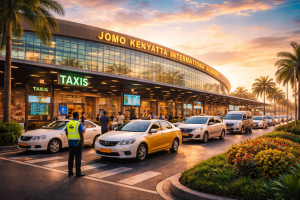Friday, December 20, 2024

Zambia has taken a monumental step in Southern African tourism by announcing the waiver of visa requirements for nationals of 53 additional countries. Starting January 1, 2024, this initiative builds upon the country’s successful 2022 policy that removed visa requirements for key tourism markets. With this development, Zambia solidifies its reputation as a regional leader in progressive tourism policies.
Expanding Visa-Free Access
The new visa policy, formalized through Statutory Instrument No. 78 of 2024, expands the list of visa-exempt countries to 167. This move reflects the Zambian government’s commitment to fostering international tourism and aligning with global trends for increased mobility.
President Hakainde Hichilema’s administration supports this policy with advanced border security measures, including a new passenger information system and the deployment of over 900 additional immigration staff. Furthermore, new immigration control points are being established nationwide to manage the anticipated rise in visitor numbers effectively.
Balancing Openness with Security
Zambia’s approach blends open-border policies with enhanced security, setting a standard for sustainable tourism growth. This policy shift aligns with the African Union’s vision for increased mobility across the continent and the broader objectives of the African Continental Free Trade Area (AfCFTA).
Tourism leaders like Jillian Blackbeard, CEO of Africa’s Eden, commend Zambia’s efforts. Blackbeard noted that the country’s progressive stance demonstrates a deep understanding of the tourism sector’s needs. She emphasized that Zambia’s successful 2022 visa waiver program had already proven the transformative power of such policies in boosting tourism accessibility.
Regional Developments: South Africa Follows Suit
Zambia’s strides in visa liberalization have influenced neighboring countries, with South Africa introducing its own measures to attract tourists from key markets like China and India. Scheduled to launch in January 2025, South Africa’s Trusted Tour Operator Scheme (TTOS) will streamline visa processes by allowing vetted tour operators to expedite visa applications for large tour groups.
TTOS aims to address challenges such as processing delays and language barriers, which have previously deterred tourists from these growing markets. By reducing red tape, South Africa hopes to capitalize on the potential of these key tourism markets, further enhancing its regional competitiveness.
Contrasting Policies in the Region
While Zambia and South Africa are advancing in visa liberalization, Namibia is moving in the opposite direction. Namibia recently announced new visa requirements for 31 countries, including major tourism markets, effective April 1, 2025. The decision has raised concerns among tourism experts, as it coincides with Namibia’s efforts to boost international air access through its “Air Connect Namibia” initiative.
David Frost, CEO of SATSA, the voice of inbound tourism in South Africa, expressed concerns about Namibia’s decision. He pointed out that introducing visa fees of N$1,600 (approximately US$88) for non-African Union visitors could negate the benefits of enhanced air connectivity. Frost contrasted Namibia’s policy with Zambia’s open-door approach, which he described as a clear example of how visa liberalization can drive tourism growth.
Economic and Tourism Impacts
Zambia’s progressive visa policy is expected to generate significant benefits for its tourism industry and economy:
- Increased Visitor Numbers: The expanded visa-free access will attract travelers from a broader range of countries, boosting tourism revenue.
- Regional Leadership: Zambia positions itself as a top choice for tourists exploring Southern Africa, offering ease of entry and rich cultural and natural attractions.
- Investment and Collaboration: The policy aligns with the African Union’s goals, fostering regional cooperation and economic integration.
Meanwhile, Namibia’s restrictive policies may deter international visitors, undermining efforts to enhance its tourism infrastructure.
Global Implications for Travelers
For international travelers, Zambia’s visa liberalization simplifies travel planning and reduces costs, making it an attractive destination for adventure and cultural tourism. The policy sets an example for other nations seeking to balance openness and security while leveraging tourism for economic growth.
Conversely, Namibia’s stricter visa rules highlight the importance of aligning policies with broader tourism strategies. The disparity in approaches among Southern African nations underscores the need for cohesive regional frameworks to attract and retain global travelers.
Leading the Way in Southern Africa
Zambia’s continued efforts to liberalize its visa policies reaffirm its role as a leader in Southern African tourism. By adopting a balanced approach that enhances accessibility while maintaining border integrity, the country sets a benchmark for sustainable tourism development.
South Africa’s initiatives, such as the TTOS, further strengthen the region’s appeal, demonstrating how progressive policies can drive growth and foster regional cooperation. Together, these efforts position Southern Africa as a hub for international tourism, offering diverse experiences and welcoming policies for global travelers.
Looking Ahead
As Zambia implements its expanded visa policy, its success will likely influence other nations to reconsider their tourism strategies. By prioritizing openness and security, Zambia provides a roadmap for sustainable tourism growth in Africa and beyond. The contrasting approaches of Zambia, South Africa, and Namibia highlight the varying impacts of visa policies on tourism, offering valuable insights for global travel and tourism stakeholders.
Source: Travel And Tour World






